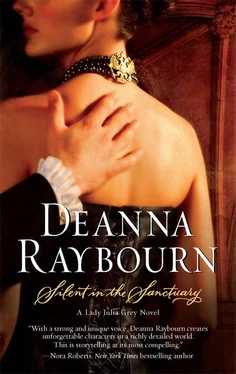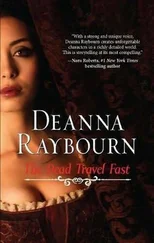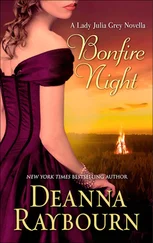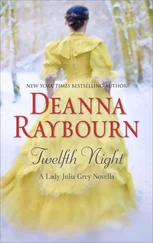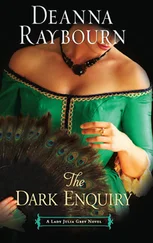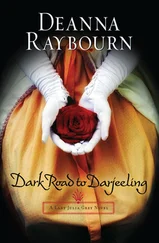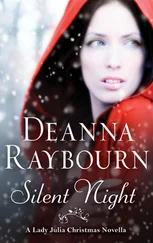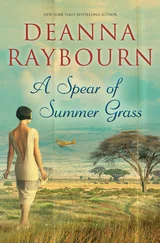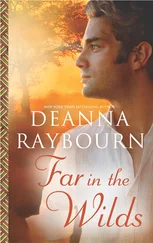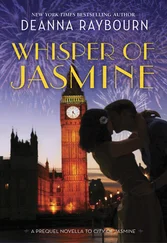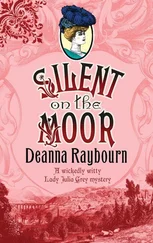As soon as we were arranged, Father took up his glass and the company did likewise. He raised his high in a patently theatrical gesture, and proclaimed in a resonant voice, “‘Now good digestion wait on appetite, and health on both!’”
There was a chorus of “Hear, hear!”, but as we drank deeply, I remembered that quote. It was from Macbeth , and I wondered with a shiver if that bloody play was an omen of things to come.
Just then Father’s mastiff, Crab, pushed her way under the table, followed by her pack of pups. Mrs. King squealed—at a wet nose thrust under her petticoat to sniff her ankle, no doubt.
Father lifted the tablecloth, upsetting a few goblets and overturning a cruet of vinegar. “Down, you lot!” he thundered, and the dogs obeyed, settling themselves under chairs and onto feet, waiting docilely for a few titbits to be dropped. I smiled at how normal it all seemed. Well, normal for us in any event. I persuaded myself that I was being fanciful with my thoughts of omens, and I slipped a bit of lobster patty to one of the pups.
As we were finishing the fish course, talk turned to the wedding, and I heard Lucy chattering happily about the arrangements.
“Aunt Hermia has been an utter lamb. Before she left for London, she took me up to the lumber rooms to pillage the things that have been packed away. All the ladies came. We were the merriest party! Would you believe we found the most beautiful gown? Lyons silk, she told me. It must be quite seventy years old, but it is in very good condition. I imagine your mama must have worn it, Uncle March.” Father lifted a brow at her, but merely continued eating his lobster patty. “And there was a bit of veiling from another bride, and a tiny wreath of orange blossom, fashioned out of silk. We took the things out for a good airing. Of course, there will not be flowers in the church. One forgets that an Advent wedding forbids it. I should have so loved to have carried even a bit of greenery, some holly, perhaps, tied with ribbons, with a few great buckets of it on the altar.”
She was wistful, and Uncle Fly, who took a rather liberal view on church matters, waved his fish fork at her. “My dear girl, if you want flowers, have them. With the wedding here in the Abbey chapel and not at St. Barnabas in the village, no one is to know or care if you put a bit of nonsense here and there.”
Lucy clasped her hands, her face alight with pleasure. “Do you mean it? Really? Oh, I should love that!”
Uncle Fly shrugged. “If you will come to the vicarage tomorrow, I will show you what I have in the conservatory just now. We can do better than a bit of holly, I’ll warrant.”
She was effusive in her thanks, but Uncle Fly merely nodded and applied himself to his fish. He was a great trencherman, and nothing pleased him more than a hearty meal from the Abbey kitchens.
“The pudding!” I said suddenly, and rather more loudly than I had intended. Conversation around the table stuttered to a halt, and everyone’s eyes fixed on me curiously. “Yesterday. It was Stir-up Sunday, and Aunt Hermia was not here to make certain the puddings were stirred. And we were not here to make our wishes.”
This was a calamity indeed. As long as Christmas had been celebrated at Bellmont Abbey, the family had gathered in the kitchens after church on Stir-up Sunday to give the Christmas puddings a stir and make a wish. Traditionally, there had been one great pudding for the entire household, but with ten children, Father had quickly seen the wisdom in having Cook prepare a small pudding for each of us. We would stand in a row, swathed in aprons, some of us tottering on stools as we dragged the long wooden spoons through the heavy batter, chanting together the traditional rhyme:
Stir up, we beseech thee,
The pudding in the pot;
And when we get home
We’ll eat the lot.
As we stirred, Aunt Hermia would peer over our shoulders, reminding us to make our wishes, and to stir from east to west in honour of the Three Kings. Then she would flap her hands, turning us from the room so she might add the charms to the puddings, a thimble for a lucky life, a ring to foretell marriage, a silver sixpence to betoken wealth to come. It was one of my favourite customs of the holiday, and not just for the festivity of the stirring-up. The puddings were heavenly, richly spiced and studded with golden raisins and currants and all manner of good things. But with Aunt Hermia in London, there was little chance the puddings had been made, and the notion of Christmas without our beloved puddings was unthinkable.
“Do not fret,” Father said with a benevolent smile. “We have had a saviour in the shape of Mrs. King. She organised the stirring-up yesterday. She even made certain there would be extra puddings for those of you come lately.”
I looked at Mrs. King who had coloured delicately, a light stain of rose across her round cheeks.
“You are too generous with your praise, my lord,” she said. But for all her modesty, it was apparent she was quite pleased to be singled out for such approbation.
“How very kind of you,” I said with deliberate sweetness, “to put yourself to so much trouble for strangers.”
If she felt the barb, she did not show it. She merely shook her head emphatically.
“Not at all, my lady. His lordship has been so kind to me, and so very good to Lord Wargrave.” She hesitated, darting a bashful gaze at her fiancé. “It was the very least I could do. The very least.”
I gave her a bland smile and was greatly relieved when the footmen stepped forward to remove the fish plates. We moved on to the next course, and the conversation turned as well. I never knew who introduced the subject, but after a moment I realised Father and Mr. Snow were engaged in a rather brisk discussion of the Gypsies.
“But surely you must see, my lord, that permitting them to camp on your land only encourages their lifestyle,” Lucian Snow was saying to Father.
Father regarded him with something akin to amusement. Father loves nothing better than a spirited debate, and I have often seen him adopt a contrary opinion in the company of like-minded people, simply for the sport of disputing with them. But on this issue, I knew his mind. He was not sporting with Mr. Snow; he was completely in opposition, and it was a position he would defend to the death, regardless of the rules of hospitality.
“Mr. Snow, are we not enjoined by the Holy Scriptures themselves to aid our brethren? Surely providing a bit of ground for their camp and a stick of wood for a fire to warm them is an act of charity.”
“A misplaced charity,” Snow replied earnestly, “for which the rest of the village will have to pay. Will you be responsible, my lord, when the shops are victims of thievery, when the farmers are victims of pilfering, when women are victims of—”
Emma gave a soft little shriek and raised her napkin to her lips. Father held up a hand. “That is enough, Snow. The Romany have camped on my lands as long as I have been lord of this manor. Never once have they repaid my hospitality with the ingratitude you have suggested.”
“Nor would they,” I put in swiftly. “To steal from their host would violate the very code by which they live their lives.”
Mr. Snow turned to me, his expression sorrowful. “Your womanly compassion does you great credit, my lady, but I am certain you would share my opinion if you understood the depths of degradation to which these poor souls must sink. But I cannot bring myself to speak of such grim particulars to a lady.”
Across from me, Brisbane continued to consume his dinner, looking supremely bored with the entire discussion. He seemed to be managing quite nicely in spite of his injury, and I wondered nastily if Mrs. King had cut his meat for him.
Читать дальше
